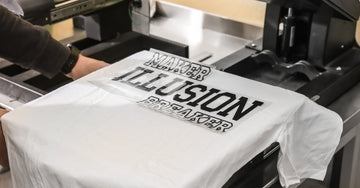In the early 2000s, a remarkable fashion phenomenon took root that would define an era: the ironic slogan T-shirts. These tees, emblazoned with snarky one-liners and cheeky catchphrases, became the unexpected voice of a generation. At once a playful rebellion against traditional fashion and a wry commentary on the cultural zeitgeist, slogan tees turned everyday attire into a canvas for self-expression, humor, and even political protest.
The Birth of the Ironic Slogan

The slogan tee didn’t emerge in a vacuum. Building on the legacy of politically charged T-shirts from the 1980s and the rebellious spirit of grunge and alternative rock in the ’90s, the early 2000s saw designers and celebrities harness irony as a form of wearable art. With the rise of the internet and the explosion of celebrity culture, messages that were once earnest became drenched in irony. Phrases like “Be Lazy, Be Happy"” and “Stop Being Desperate” weren’t just statements - they were a wink and a nudge to a generation grappling with pop culture excess and media scrutiny.
Pop Culture’s Ironic Playground

At the forefront of this revolution were pop icons who turned T-shirts into statements. Britney Spears, for instance, famously sported the “Dump Him” tee - a bold, unapologetic nod to her personal life that instantly became a cultural touchstone. Similarly, Paris Hilton’s choice of ironic messages on her baby tees helped cement the look as a symbol of youthful defiance and a playful critique of celebrity and consumer culture. These T-shirts captured the paradox of the era: the more glamorous the lifestyle, the more self-aware and tongue-in-cheek the messaging became.
As noted by contemporary fashion critics, the “clapback” T-shirt—a term that encapsulated the spirit of the era—was less about the literal message and more about its ironic delivery. This trend even paved the way for modern iterations where celebrities like Charli XCX have revived the tradition, proving that a well-placed slogan can still send shockwaves through both the media and the streets.
Design as Dialogue
What set these t-shirts apart was their design. Bold typography, often in oversized fonts, coupled with minimalist graphics, created an aesthetic that was at once simple and powerfully evocative. The irony lay in the juxtaposition: under the veneer of casual, almost offhand style was a carefully constructed message that invited the wearer - and the observer - to engage with a subversive commentary on society.
Designers deliberately chose slogans that seemed almost too on the nose, playing with the public’s expectations. In doing so, they blurred the lines between genuine sentiment and sardonic humor. This approach resonated deeply with a generation that was both enamored with and increasingly critical of the media’s portrayal of celebrity and lifestyle.
A Lasting Legacy
The impact of the early 2000s slogan revolution extends far beyond its heyday. Today, the influence of these ironic tees can be seen in the resurgence of vintage styles and in the continued popularity of T-shirts as a medium for personal expression. The legacy is evident in how modern fashion brands and influencers remix past trends with contemporary flair - reminding us that irony, when done right, remains timeless.
The cultural cachet of these T-shirts lies in their ability to encapsulate a moment in time - a snapshot of a generation’s attitude that was equal parts defiant and self-deprecating.
Conclusion
The early 21st century slogan revolution was more than a fleeting fashion trend; it was a movement that challenged the norms of style and communication. It transformed simple T-shirts into powerful symbols of irony, rebellion, and personal narrative. Today, as the fashion world continues to cycle back to these vintage aesthetics, the spirit of those early 2000s tees lives on - a reminder that sometimes, the best way to speak out is to let your clothes do the talking.
Discover even more irony in our Pinterest boards - follow us!






